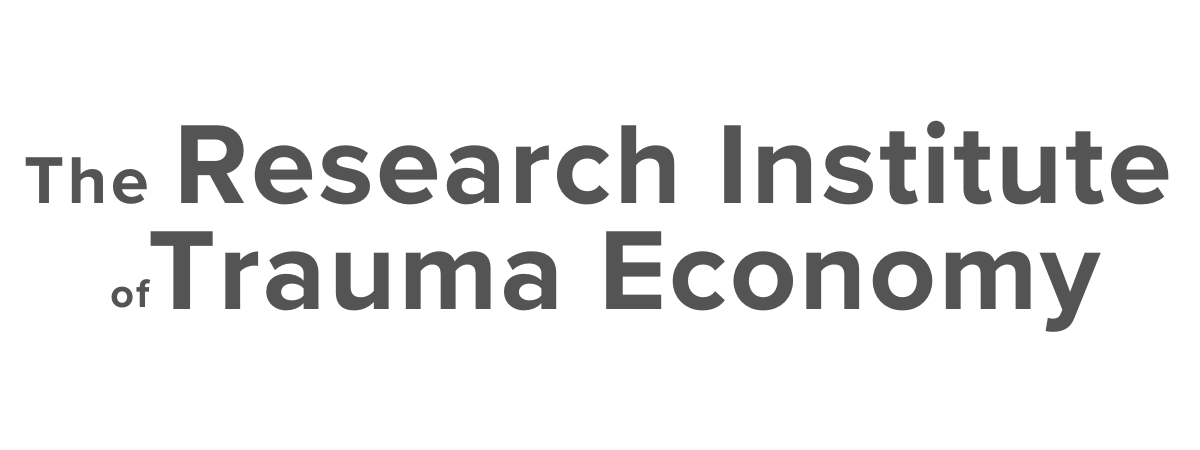
70% of adults in the U.S. have experienced some type of traumatic event at least once in their lives—That’s 223.4 million people
(The National Council for Behavioral Health, 2022)
Introduction
The Research Institute of Trauma Economy (RITE) is an interdisciplinary research organization dedicated to understanding the profound financial and economic consequences of psychological trauma. By integrating Psychology, Mental Health, and Economics, RITE explores how trauma affects economic participation, workforce productivity, healthcare costs, and public spending over the lifespan.
Mission Statement
To analyze and empirically validate emergent and established systems of traumatization that predictably diminish health and economic participation over the lifespan, using micro- and macro-economic assessments, and to design trauma-informed public programming that achieves highest economic and psychological health outcomes at the lowest cost.
What is Trauma Economy?
Trauma Economy is the interdisciplinary study of how psychological trauma—particularly Adverse Childhood Experiences (ACEs) and “Toxic Stress”—affects economic participation, workforce productivity, public spending, and societal wealth. It examines the financial burden of trauma-related dysfunctions on healthcare, education, criminal justice, and employment systems, using economic modeling and empirical research to quantify costs and predict outcomes.
By mapping these connections, Trauma Economy as a distinct academic discipline provides critical insights that inform policy, prevention strategies, and economic interventions aimed at reducing long-term financial strain and improving human capital potential.
The World Health Organization (WHO) estimates
that Depression and Anxiety disorders alone
cost the global economy $1 trillion annually
Why Trauma Economy Matters
Get Involved
Research Framework
Methodology and Data Sources
The study of Trauma Economy is crucial because psychological trauma has profound economic consequences. ACEs and the symptoms of unresolved trauma contribute to reduced workforce participation, lower productivity, increased healthcare costs, and greater public spending on social services and criminal justice.
By quantifying the financial burden of trauma, Trauma Economy research provides policymakers, businesses, and healthcare systems with data-driven solutions to reduce economic strain. Understanding these impacts allows for cost-effective, trauma-informed prevention programs, improved labor market outcomes, and stronger economic and psychological resilience. Investing in trauma-informed policies can lead to higher productivity, reduced public expenditures, and a safer, healthier, more prosperous society.
A holistic, three-pillar model:
Trauma Science
Grounded in validated clinical and epidemiological research. Includes ACE scoring, mental health prevalence, and the biological effects of toxic stress.Economics Without Blindspots
Combining conventional and unconventional economic measures — from wage data and productivity to GINI coefficients, well-being indices, and intergenerational mobility metrics.Policy in Practice
Translating data into prevention strategies, targeted investments, and measurable policy recommendations.
At RITE, methodology follows the question — not the other way around.
We use:
Regression and econometric modeling
Behavioral economics experiments
Geospatial mapping
Public health statistics integration
Longitudinal data analysis
Access to larger and more comprehensive datasets is on-going, some of the current sets being used by RITE include:
CDC Behavioral Risk Factor Surveillance System (BRFSS)
Bureau of Labor Statistics (BLS)
OECD Better Life Index
US Census ACS
National Child Abuse and Neglect Data System (NCANDS)
Indian Health Service (IHS) Statistics
All analyses are transparent, reproducible, and ethically conducted.
